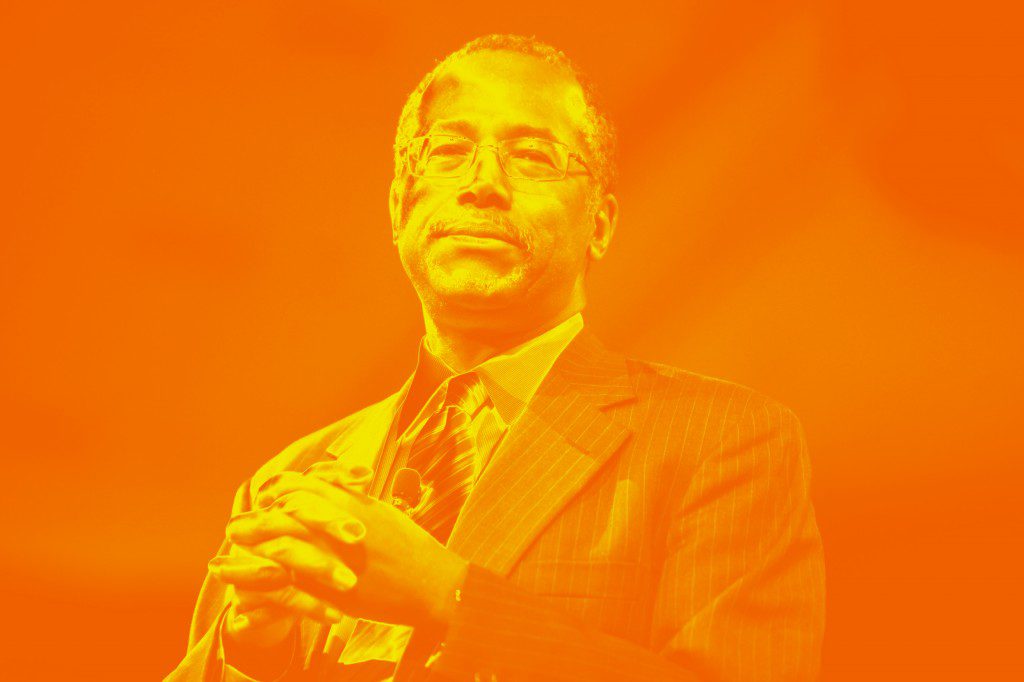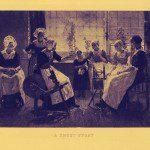
Alterations by JJ Feinauer
Presidential Candidate Ben Carson is a member of the Seventh-day Adventist Church, a protestant sect of Christianity that was founded in Michigan in 1863. It’s a pretty interesting religion that upholds a number of basic Christian beliefs (the Trinity, the Bible, Adam’s fall, redemption through Christ alone) while also adding it’s own special flavors (most famously, that Christian’s should continue to observe the Sabbath on the seventh day of the week).
I don’t know much about the SDA Church, but I’ve read (skimmed really) through the 28 Fundamental Beliefs found on their website, and I’m not personally scandalized by anything I see there. I’ve also known a few SDA members, and they’ve all been very nice, reasonable people.
But bless their hearts, the SDA Church is likely in for a fun little whirlwind of media attention. Because of Carson’s growing popularity in the polls, those who oppose his positions have naturally turned to his religion in attempt to understand his political ideology.
Over at Mother Jones, David Corn recently published a piece examining Carson’s religion and situating him against the evangelicals who make up a large part of his support:
A central belief of the church is that most other Christian denominations will end up working with the devil. Seventh-day Adventists hold that the Sabbath should be worshipped on Saturday and that religions that observe the Sabbath on Sunday have been corrupted by Satan. The church’s early prophet Ellen White cast much of the blame for this supposed perversion of the Sabbath on the Roman Catholic Church.
When I read this, my Mormony senses started tingling a little. I’m not sure if Corn’s assertion is true (it very well could be) but I’m not totally sure what something like this proves. Corn points to some instances when Carson seems to support this specific belief — that those who worship on Sunday are wrong and will be dramatically punished for it — in a sort of attempt to say “if only evangelicals knew what Carson believed about them.”
Corn deflects the idea that maybe Carson holds more nuanced views on the matter, stating rather authoritatively that “This is church doctrine.” He explained:
A few weeks ago, a spokesman for Carson’s presidential campaign insisted to me that it was not fair to interpret those Carson remarks as acceptance of White’s prophecy. But the official position of the Seventh-day Adventists incorporates White’s forecast that other Christian denominations will partner up with Satan.
This sounds to me like a typical line of reasoning when the media discusses religions outside the mainstream: Here are some things they believe, and that belief is inescapable because it’s a belief accepted by the church in an official capacity. But I think that type of fire-stoking only works when the religion is something people aren’t terribly familiar with. For example Rick Santorum, Paul Ryan and Joe Biden are all Roman Catholic. My understanding of Catholic dogma is that they are also not terribly theologically inclusive toward those lack baptism by their authority. In fact, most religions I’m aware of have some sort of exclusionary element that seems pretty rude to anyone outside the faith. But no one things to dwell on that when Catholics run for office, but it’s also clear that Catholics experience their faith in a variety of ways. Some think abortion should be illegal, others do not. Some oppose gay marriage, others champion it.
So I think it’s a little silly to give Carson’s religion special treatment because it is less understood in general. Having said that, I do think it’s absolutely fair to examine Carson’s religious beliefs on a personal level because, as Corn puts it, faith is “an essential part of his success” as a politician. But I think there’s a difference in treating him as a religious individual, and attempting to situate his entire religion into one political box. The fact of the matter is, individuals within any given religion hold many different beliefs. Just because the SDA Church officially preaches that the seven day creation is literal doesn’t mean there are absolutely no members that accept evolution. So to me it seems more constructive to look at Carson’s views as personal, and not worry too much about his faith community.
To bring in an oft used example, Mitt Romney and Harry Reid are both Mormon. Reid believes gay marriage should be legal, Romney does not. That’s why when people point to Romney’s religion as the reason he opposes gay marriage, I think that’s a little short sighted. Romney is also a Republican, so he is in step on this issue with many of his Republican colleagues who are not Mormon. Same goes for Reid, who largely conforms to the Democratic position. While I certainly believe that Romney’s position is heavily influenced by the stance of the church (though he has never cited that as justification, to my knowledge) he is still a personal agent. I think it’s clear enough by now that one can indeed be Mormon and hold a different view from Romney’s.
I think the same possibilities should always be afforded political candidates. Religion should not be off limits, but I also don’t think it should become a monolithic bogeyman. Carson’s problem, in my opinion, is that he has lame ideas. Not that those ideas are or are not influenced by his religion.
Be sure to check out David Corn’s full article, in case I did a horrible job representing it. If I did, hit caps lock and yell at me in the comments.












